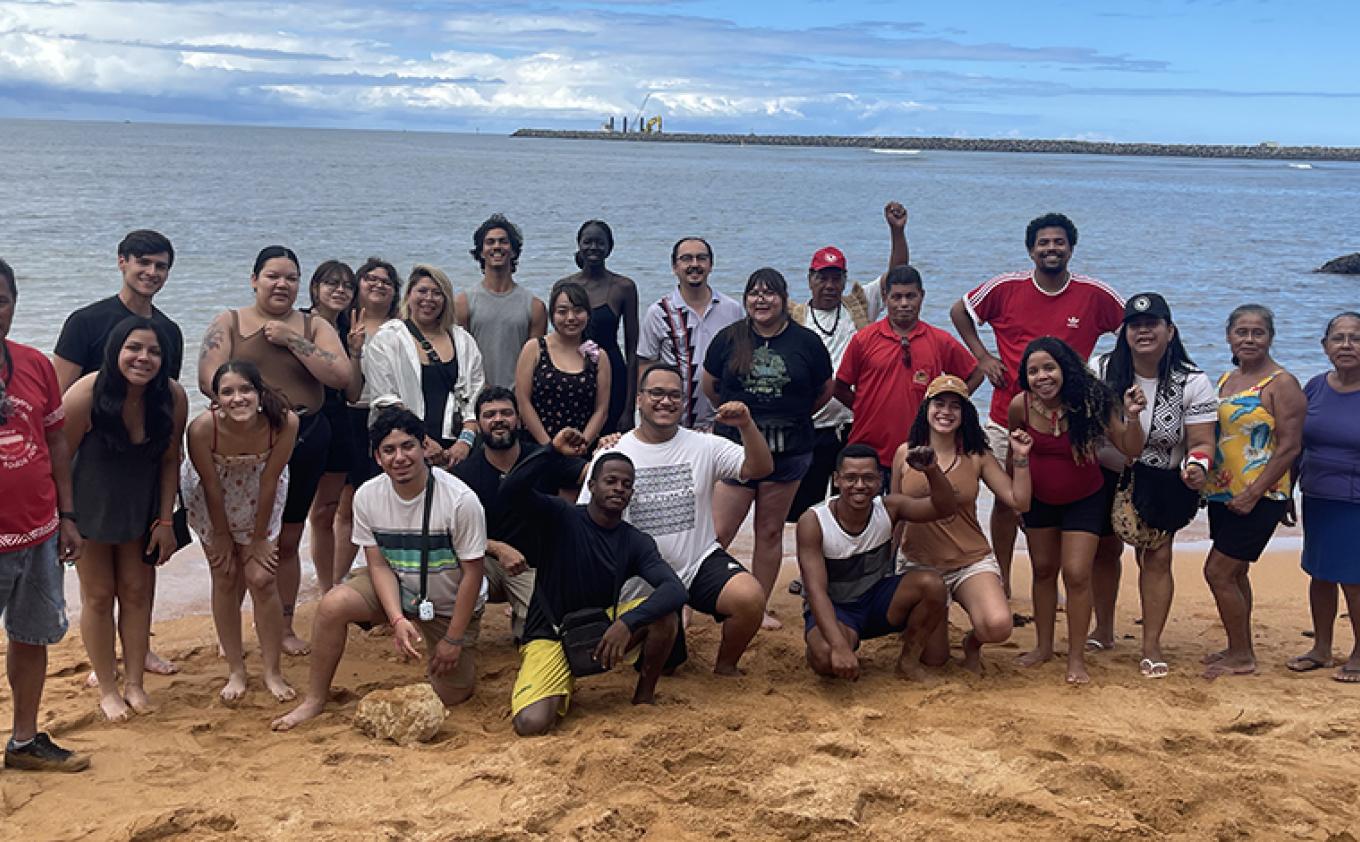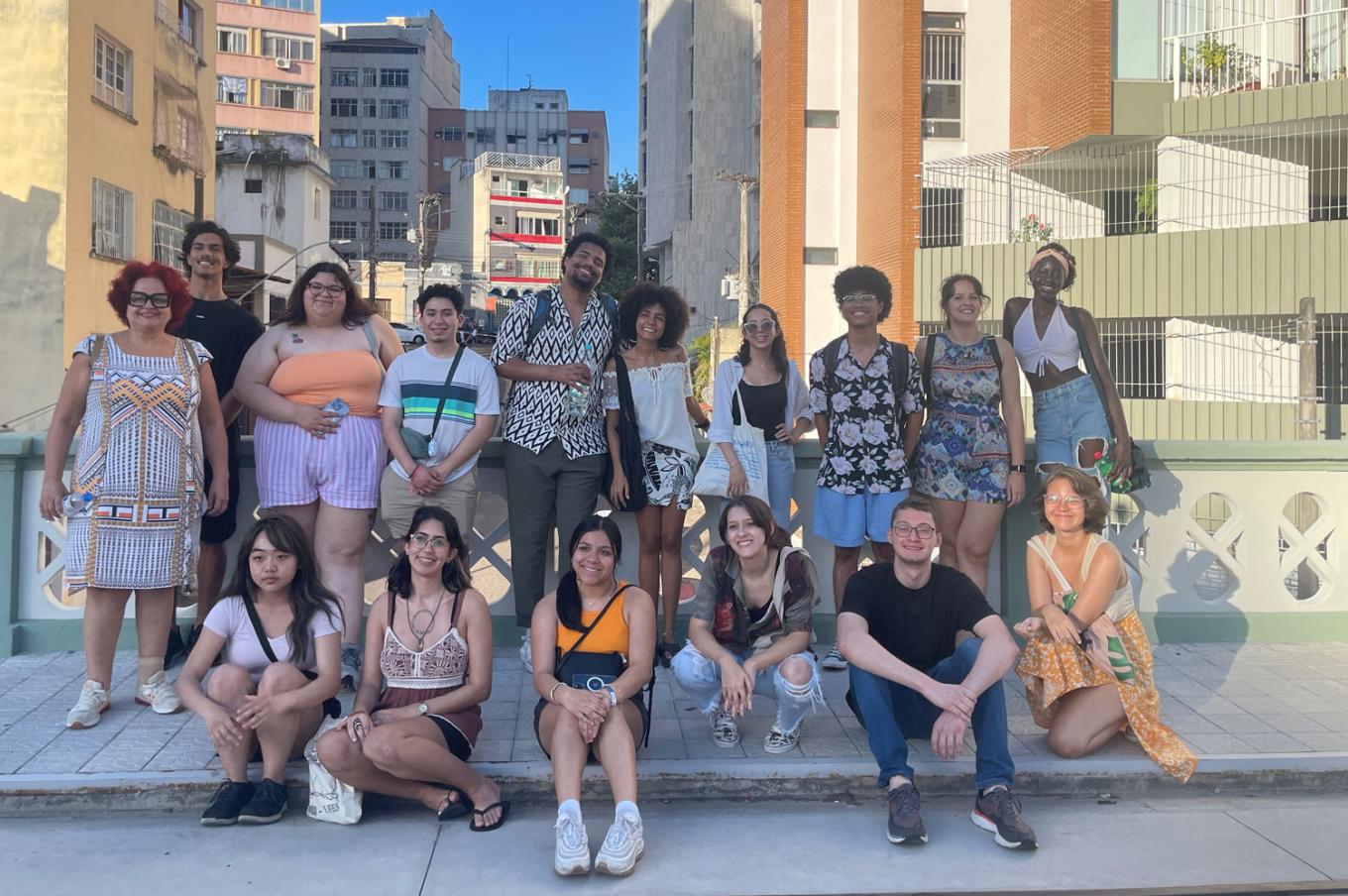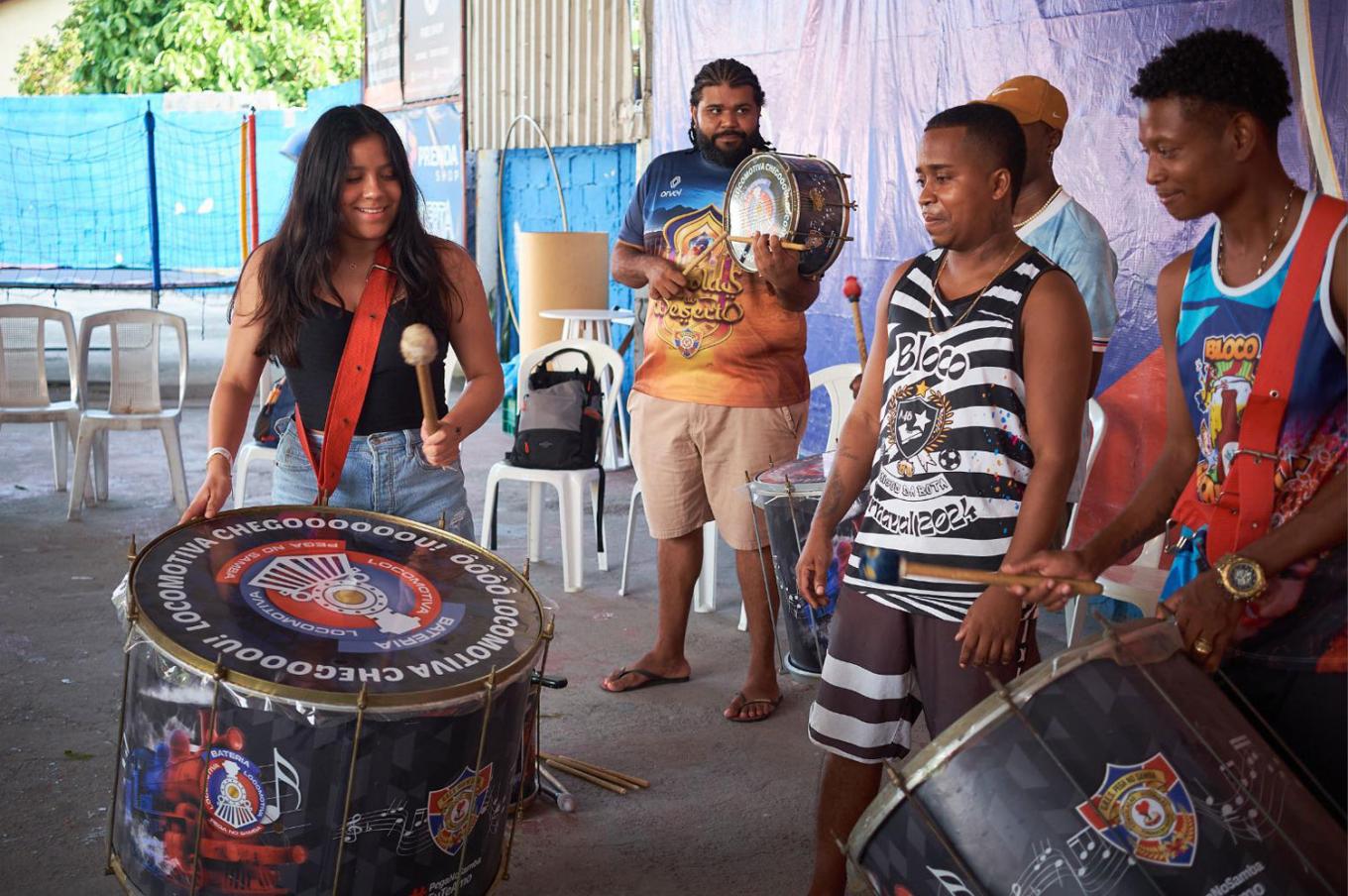2024 Fall

From Minnesota to Brazil
EXPANDING STUDY ABROAD OPPORTUNITIES FOR UNDERREPRESENTED STUDENTS
Historically, study abroad has not been designed with low income, first-generation, and Indigenous students as its audience. Research conducted in CEHD and elsewhere has found that these are the student populations that tend to feel least connected to the university community.
For the past decade, CEHD International Initiatives has been committed to reimagining and widening study abroad experiences for our students. In collaboration with TRIO Student Support Services (SSS) staff, CEHD faculty, and global partners, we began a working group in 2021 to discuss our vision for a more inclusive and meaningful abroad experience. The group was awarded the Increase and Diversify Education Abroad for U.S. Students (IDEAS) grant in 2022 and in May 2024, the course Communities of Power and Resistance in Brazil was offered.
This course is part of a fully funded program that was in development for three years. It offers a study abroad opportunity for students in the TRIO SSS program and students from the Red Lake Nation, our Minnesota community partner. The program included nine students, five from CEHD and four from the Red Lake Nation community. The innovative program model provided a unique learning environment for students by considering their identities, diverse needs, and background. The program is another powerful step toward the amplification of underrepresented voices in global education.

Downtown Vitória tour (Vitória, Brazil) (Photo courtesy of International Initiatives)

In Brazil, Minnesota students from CEHD and Red Lake Nation also engaged with diverse college students from the Universidade Federal do Espírito Santo (UFES) in Vitória, the capital of the Brazilian state of Espírito Santo. Local student ambassadors from UFES participated in classroom learning and cultural exchange with Minnesota students. All students found that while they all had experiences and challenges specific to their local contexts, many important educational issues spanned across borders and continents.
One UFES student, Brunella Ribeiro (civil engineering) shares, “This experience was highly transformative for me because I had some mistaken image about North American citizens and culture.” Likewise, Kimberly McCormick (family and social science) explains, “I learned so much about how different the systems are in the U.S. vs. Brazil, it made me question my values and beliefs.” Relationship building was central to the abroad experience and student interactions became a powerful space for learning and reflection. CEHD student Jenave Mendoza (elementary education) adds, “My favorite part of the trip was the connection with UFES students. They showed us around Vitória, we went on a little hike, rode on the water boat, saw the lighthouse, and watched the sunset at the secret beach. I miss everyone and everything in Vitória, Brazil.”
The course content was developed by former Department of Organizational Leadership, Policy, and Development (OLPD) Associate Professor Tania D. Mitchell, an expert in social justice education, and had support from OLPD comparative and international development education (CIDE) doctoral student and teaching assistant Washington Galvão. Galvão grew up in Brazil and brought a deep understanding of cultural identities and the learning needs of students in Brazilian society. Students in the program learned about the social movements that have shaped access to higher education in Brazil. They remarked how they were able to compare this history with their own understanding and experiences in the United States.
Nyanak Gatpan (fourth year, health and wellbeing sciences) notes, “We examined cultural differences and exchanges, as well as government involvement in access to higher education. My time in Vitória resulted in an introspective and transformative outlook on the pathway to college for students worldwide, and the role identities have contributed in the journey.” Through course content and generative discussion, students examined social inequities and educational access within Brazil from the perspectives of marginalized communities including Afro-Brazilian and diverse Indigenous groups. For example, students learned about how Indigenous issues are treated in Brazil during a visit to the community Pau Brasil (Tupinikim people). Community leaders Wellington Îybatãtupã de Lima Ferreira and Jessica Marcos Coelho hosted a cultural night for dialogue among the students, community elders, and young leaders. The experience was an opportunity to gain a global perspective on relationship building and solidarity. For the nine students who were selected to participate, this program represented more than just an academic experience.

Samba class at Pega No Samba School (Vitória, Brazil). (Photo courtesy of International Initiatives)

As Alex Rivera (Indigenous studies), an Indigenous student from Bemidji State shares, “This international study abroad program was an eye-opening experience. Not only did we learn about the Brazilian lifestyle, but we also got to live and connect with the lifestyle firsthand.” Being in community with the Tupinikim people was powerful and emotional through a sense of shared struggle.
As Matthew Montañez (youth studies/pre-med) affirms, “An experience of a lifetime! This experience helped challenge me and made me think in different ways. This experience helped me figure out more about myself and my identity and culture and helped me feel proud of who I am. It truly left a mark on me, and I am very grateful for everything we learned and experienced."
This experience helped challenge me and made me think in different ways.
CEHD is proud of this program for many reasons. It represents the value and contributions of our college to human learning and sustainable communities. We brought together students that rarely have the opportunity to sit across from each other to dialogue, laugh, learn, and be transformed by human connection. I am thankful for Dr. Rosa Acevedo’s (CIDE ‘20) research and findings, done in our college. Her work inspired this initiative, and the outcomes exemplify the transformative power of evidence-based programming.
CEHD truly embraces its commitment to engage local and global communities through the continued funding of this program. Now we are off on another journey, to imagine, develop, and secure funds to bring first-generation, low-income, BIPOC Brazilian students to the University of Minnesota.
—MARINA ALEIXO & WASHINGTON GALVÃO
Marina Aleixo is director of International Initiatives and Relations at CEHD.
(Photo courtesy of International Initiatives)